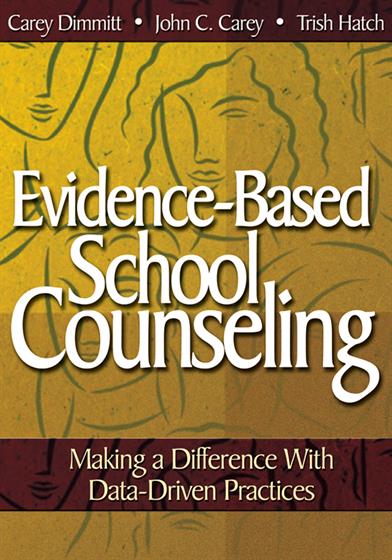Preface
Acknowledgments
About the Authors
1. Moving to Evidence-Based School Counseling Practice
Integrating Evidence and Practice
A Model for Evidence-Based School Counseling Practice
Evidence-Based School Counseling in the Context of the Reform Movement
School Counseling and Standards
School Counseling Reform
Summary
2. Data-Based Decision Making: Knowing What Needs to Be Addressed
Data-Based Decision Making and School Improvement
Data-Based Decision-Making Models
A General Model for Data-Based Decision Making
Enabling Conditions for Data-Based Decision Making
Summary
3. Practical Considerations in Using Data
Types of Data
Collecting, Analyzing, and Disaggregating Data
Developing Data-Based Action Plans
Creating an Action Plan With Evaluation in Mind: Using Process, Perception, and Results Data
Data Over Time
Summary
4. Choosing Interventions: Reading and Weighing Outcome Research
Why Are Research-Based School Counseling Interventions Important?
Becoming an Informed Consumer of Research
The Research Context
How Can School Counselors Find Interventions That Will Work?
Summary
5. Evaluating School Counseling Interventions and Programs
What Is Evaluation?
Programs and Interventions
Evaluating Interventions
Evaluating Programs
"Customer" Satisfaction
Using External Experts in School Counseling Reviews
Summary
Sample Intervention Evaluation Action Plan: Evaluation of Second Step Violence Prevention Curriculum (Fifth Grade)
6. Action Research and Collaborative Partnerships
What Is Action Research?
Action Research Partnerships
Why Conduct Action Research?
How to Conduct Action Research
Summary
7. Measuring Student Learning and Behavior Change
Types of Assessment
Measuring Student Learning Effectively
Using Existing Assessment Tools
Measuring Changes in Attitudes, Skills, and Knowledge
Developing Pre- and Posttests
Summary
Sample Learning Goals and Related Pre- and Posttest Questions
Sample Standards-Aligned Curriculum and Pre- and Posttests
Fifth Grade-Middle School Transition Lesson
8. Using Surveys to Gather Information
Using Existing Surveys
Survey Development
Summary
9. Moving to Evidence-Based School Counseling Practice
An Integrated Evidence-Based Proactive Approach
The Journey: Getting From Here to There
A Five-Year Plan
Reporting About Results to Enhance Legitimacy
Disseminating Results Effectively
The ASCA National Model and Results Reporting
Planning Your Ongoing Professional Skill Development
Reconstructing Professional Identity
Appendix A: Guidance Curriculum Action Plans, Intentional Guidance Action Plans, and a Needs Assessment Survey
Appendix B: Summary of School Counseling Outcome Research Articles and Findings
References
Index





